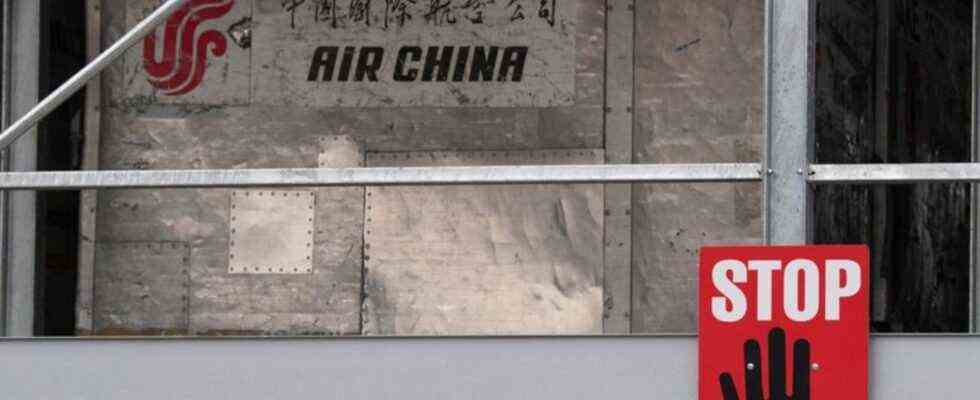raw materials
Medium-sized companies are groaning under delivery bottlenecks and rising costs
A red warning sign with the words “Stop” hangs on a warehouse for empty freight containers in the cargo area of Frankfurt Airport. (Archive image) Photo: Boris Roessler / dpa
© dpa-infocom GmbH
The order situation at many companies is not that bad. But because important parts or raw materials are missing, there is a crunch in production. Rapid relaxation is not in sight.
Delivery bottlenecks and rising material costs are increasingly becoming a burden for Germany’s medium-sized companies.
The order books of many companies have filled up properly after the Corona low, but because preliminary products or raw materials are missing, production cannot keep up. In a survey by DZ Bank, two out of three medium-sized companies (65 percent) stated that they can currently only process incoming orders with a time delay. More than every fourth medium-sized company in Germany (28 percent) is now forced to reject customer orders due to missing goods.
“Together with the shortage of skilled workers, material concerns and price pressure are now the greatest obstacles to growth,” said Uwe Berghaus, CEO of DZ Bank’s corporate customers, summarizing the results of the survey among 1000 companies. “The new government would do well to provide relief as soon as possible.” Above all, the reduction of bureaucracy must be pushed ahead so that the companies can concentrate fully on stabilizing their supply chains. “If that doesn’t succeed, Germany will be left behind in international competition,” warned Berghaus.
The order situation should actually be a reason for confidence: According to the information, orders for four out of ten companies have long been above pre-crisis levels. The electrical industry in particular benefits from great demand.
Raw materials are in great demand
But because the global economy has recovered rapidly in large parts of the current year after the pandemic-related crash in 2020, raw materials and important parts are in great demand around the globe. That creates shortages. Another burden for companies is the significant increase in energy prices.
In the meantime, “the negative effects of the post-corona boom (…) have reached medium-sized companies,” write the DZ Bank economists. “Despite its tendency towards more domestic orientation and the correspondingly lower dependence on crises in the long term, the small to medium-sized companies cannot escape the current developments on the world markets.”
In the survey, two-thirds (67 percent) of companies said that cost increases are weighing on their business. According to their own statements, 16 percent of medium-sized companies have to reject orders because the costs of implementing them would be too high.
According to the DZ Bank experts, the delivery problems will not be resolved in the short term, as the situation in container shipping will not ease overnight. “This is why the shortage of some intermediate products will be felt well into next year,” says the analysis.

